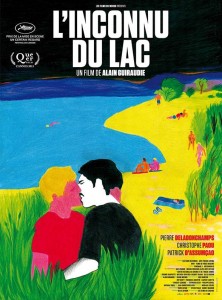Dir: Darren Thornton | Cast: James McArdle, Fionnula Flanagan, Dearbhla Molloy | Drama, 89′
A Long Weekend for Four Sons and Mothers
Norman Bates uttered the immortal line “a boy’s best friend is his mother “. A new Irish comedy drama Four Mothers references this as a mostly feel-good film, involving a group of mothers who are looked after by a son while his gay friends have a long weekend away.
The focus of the film on middle-aged gay men is refreshing given the emphasis on youth in contemporary gay culture and the more familiar grand guignol relationships between sons and mothers in the hot house melodramas of Tennessee Williams or Alfred Hitchcock.
The centre of the film is Edward. On the cusp of international success as a published writer, he also provides live-in care for his mother. The relationship is warm though may not all be as rosy as it seems with suggested issues of familial guilt and regret. In the film’s most edgy sequence, involving Niamh Cusack as a psychic medium, Edward admits to a difficult relationship with his father and, at times, there is a feeling of coldness between mother and son accentuated by health issues rendering her mute and reliant on an iPad to communicate.
The writer/director team of brothers Darren and Colin Thornton handle the ensemble playing of the four mothers (Paddy Glynn, Stella McCusker, Dearbhla Molloy and Fionnula Flanagan as Edward’s mother) with subtle observations, although what anchors the film is the central performance of James McArdle as Edward. He is at the centre of the film in most scenes and manages a sympathetic charm while also suggesting underlying questions that life is not as fully realised or rewarding as he would like.
Earlier failed personal relationships (including with a younger man who also works as a carer) and the commitment he has for his mother may be the cause of an imbalance between personal satisfaction as a serious writer and a caring son. This is not deeply explored but in McArdle’s performance these details are hinted at with sincere empathy which the film aims to carry along with a feel-good tone.
Four Mothers was inspired by Gianno Di Gregario’s 2008 Italian film Mid August Lunch with this version providing an intriguing gay twist to the Italian mother/son complex of the original. Avoiding the realist naturalism of Ken Loach/ Mike Leigh, Four Mothers opts for a more genial and, at times, sitcom mood employing an often too soft musical soundtrack which occasionally takes the film into televisual mode. Four Mothers exudes charm while remaining a light souffle with a few darker ripples under the surface. PB HERBERT vf
https://www.peterherbert.online
https://theartsproject1.wixsite.com/theartsproject
BFI FLARE 2025 | 19 – 30 MARCH 2025 | LONDON’S SOUTHBANK | FOUR MOTHERS in UK and Irish cinemas 4th April.



